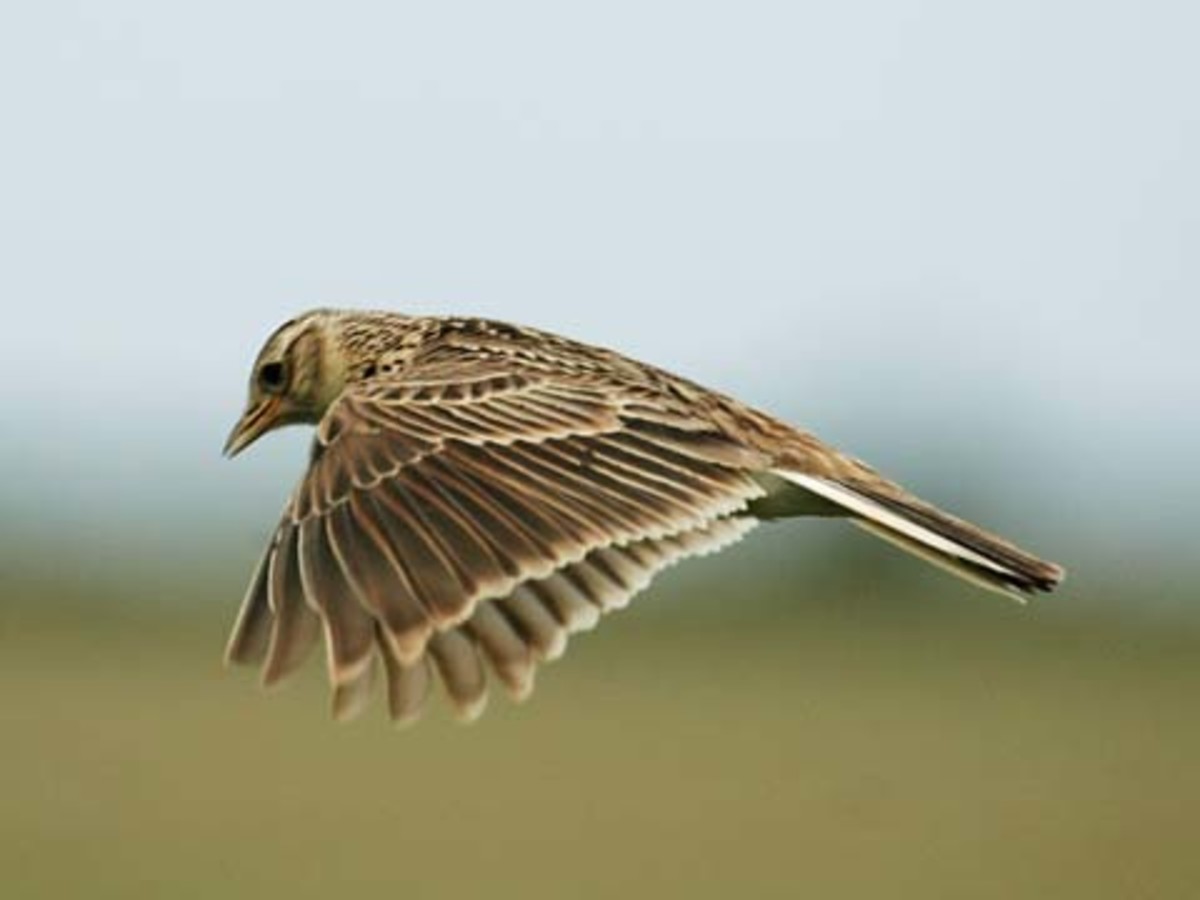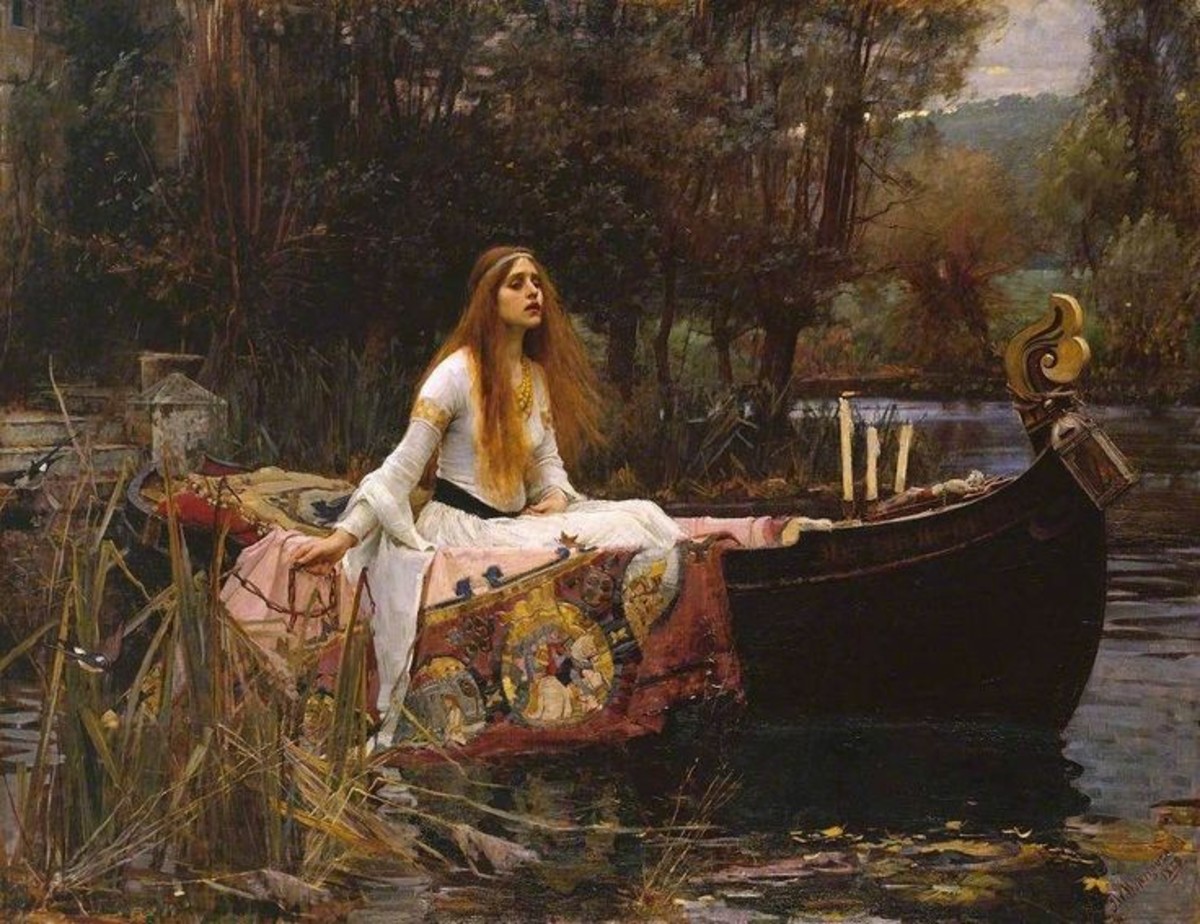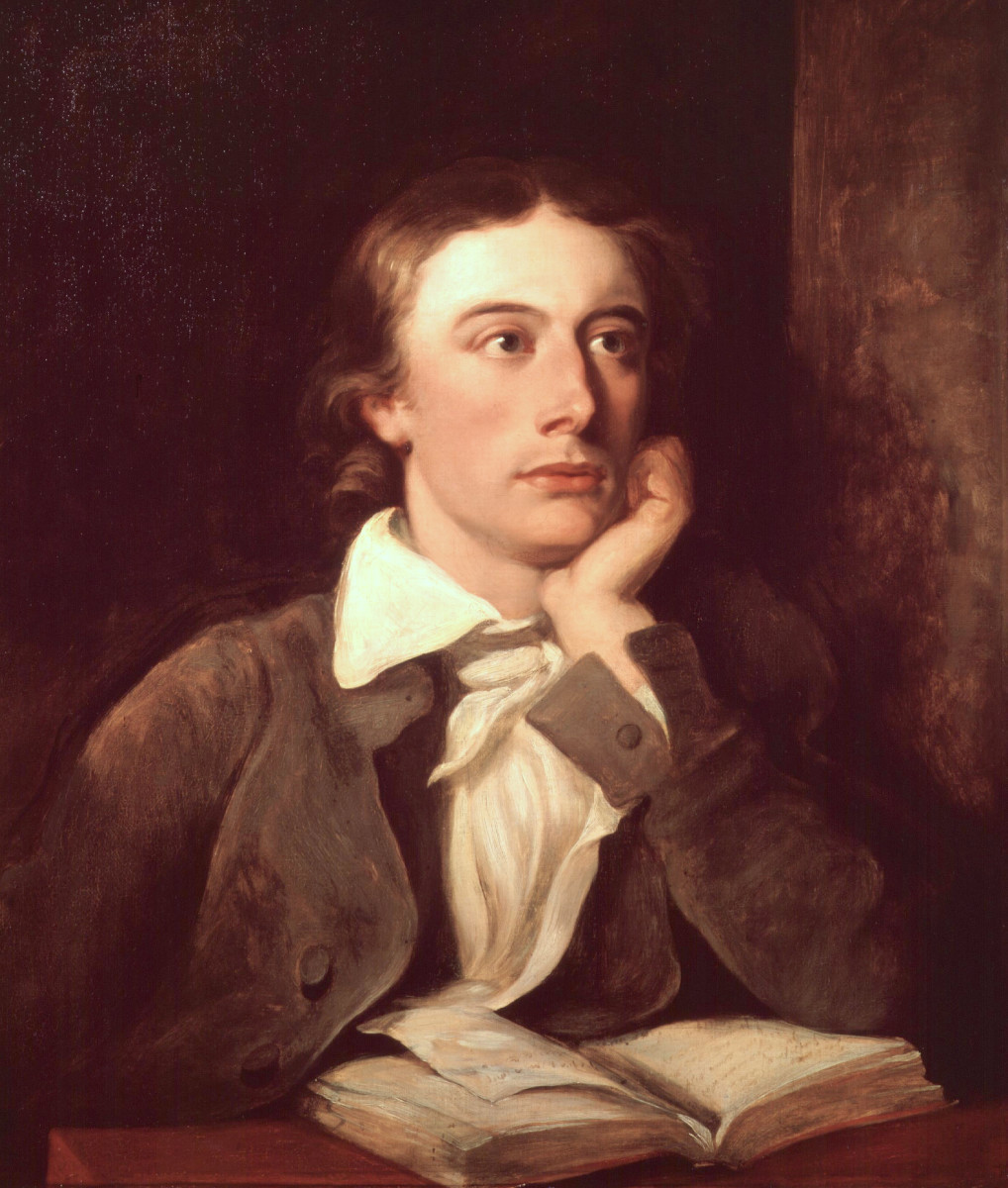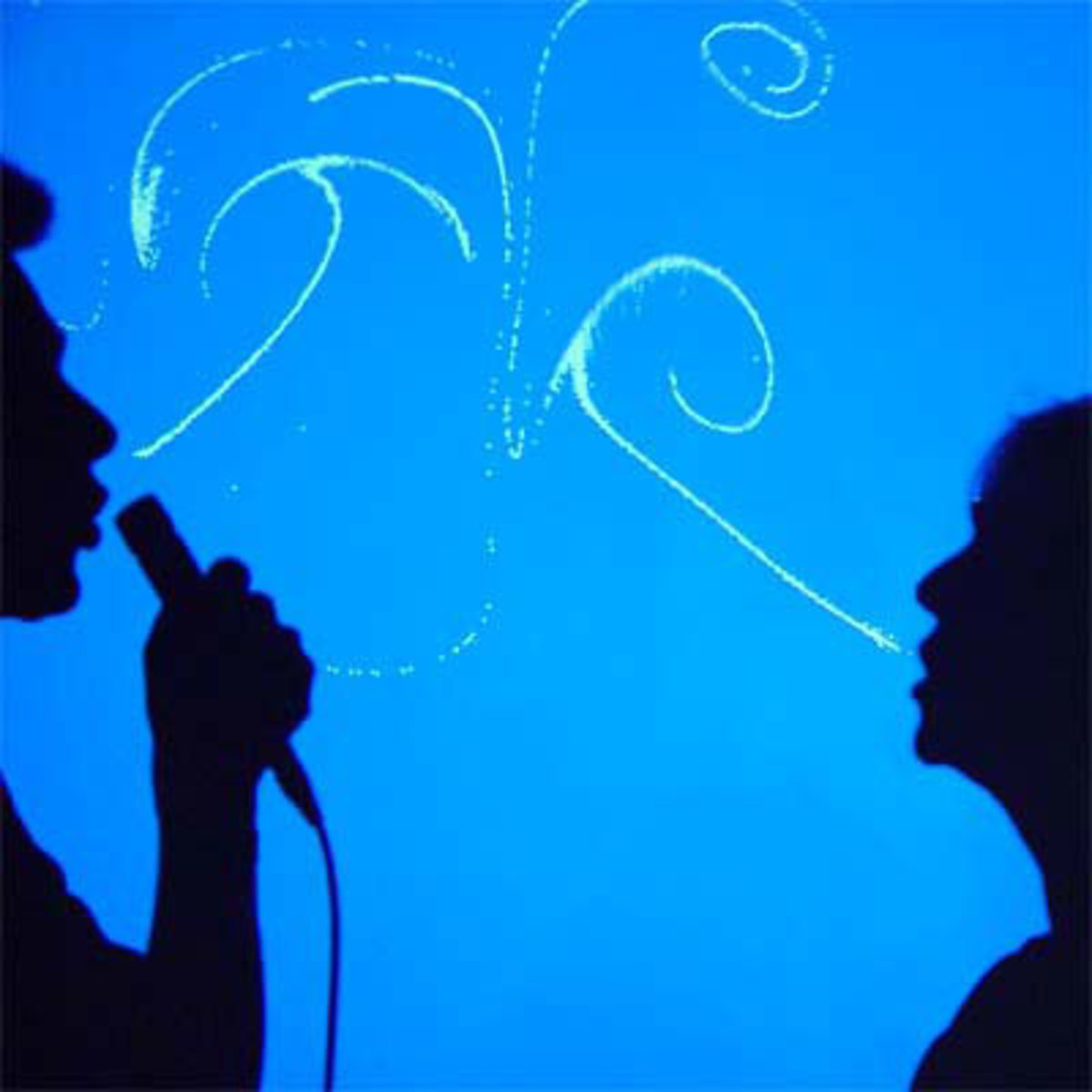Birds within the Poetry of Shelley and Keats
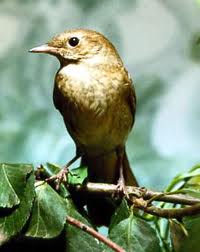
Birds within the Poetry of Shelley and Keats
In “A Defence of Poetry,” Percy Bysshe Shelley stated, “A poet is a nightingale, who sits in darkness and sings to cheer its own solitude with sweet sounds; his auditors are as men entranced by the melody of an unseen musician.” (843) Fitting his own definition of a poet, Shelley must have found some solace in composing poetry. The same may be said of John Keats who stated that he would fly away on “the viewless wings of Poesy.” Both of these poets were “nightingales”. Shelley and Keats derived poetic inspiration from fowls, nature’s winged songstresses. Keats published “Ode to a Nightingale” in 1819 while Shelley published “To a Sky-Lark” in 1820. Keats and Shelley use the birds in their poems as metaphors for their speakers’ differing personal desires.
In “To a Sky-Lark,” Shelley’s speaker calls the skylark “blithe Spirit!” The capital “S” seems to demand extra attention to the word “spirit.” The speaker also claims that the skylark is not actually a bird, but that it is “from Heaven, or near it.” The speaker may deem the skylark as an angel or God since it may be from heaven. God and angels are unseen, but people still believe in them. The skylark is unseen as well, but the speaker knows that it is there since he can hear its “shrill delight.” People may believe in God, because they have his words in the Bible. Yet, faith is necessary to believe in that which is unseen.
The speaker says to the skylark, “What thou art we know not.” At the same time, people do not actually know what God is. Terms like omniscient and omnipotent are often used to describe him. The speaker uses similes in his attempt to describe what the bird is. It is “Like a high-born maiden.” Her music is “sweet as love-which overflows her bower.” She is in a garden which may represent the Garden of Eden. The bird is also “Like a glow-worm golden/ In a dell of dew,/ Scattering unbeholden/ Its aerial hue.” The glow-worm has no obligation, nor does the bird. If the skylark is representative of God, then God may have no obligation to man. The speaker also compares the bird to “a rose embowered/ In its own green leaves-/By warm winds deflowered.” The rose shelters itself just as God does. Finally, the speaker proclaims, “All that ever was/ Joyous, and clear and fresh, thy music doth surpass.” The skylark is the essence of these things, far greater than joy itself, just as God is the essence.
The speaker beseeches the bird, “Teach us, Sprite or Bird.” It is as if the speaker were begging God to teach him something. The speaker has “never heard/ Praise of love or wine/ That panted forth a flood of rapture so divine.” The speaker may be seeking a mystical, rapturous experience with the divine God. Yet, the speaker goes on by stating, “Matched with thine would be all/ But an empty vaunt,/ A thing wherein we feel there is some hidden want.” The speaker may be saying that for a man to think that he may be able to match with God is meaningless boastful desire. Yet, the desire remains.
The speaker contemplates the skylark with the questions, “What love of thine own kind? what ignorance of pain?” The speaker may be questioning God’s love of humanity. What kind of love is it? Is God’s love of humanity truly without obligation? What of God’s obligation for creating man? The speaker may also be questioning God’s understanding of human pain. Is God ignorant of human suffering? As Jesus, God claimed human suffering, and suffered for man’s sin. The speaker may also be aware that the skylark has often been used as a symbol of Jesus Christ, and the skylark has been deemed like Christ as a mediator between heaven and earth. Jesus did not fret over the human condition. Instead, he placed all of his faith in God.
The speaker says to the skylark, “Thou lovest-but ne’er knew love’s sad satiety.” Perhaps God loves mankind, but mankind has a different kind of knowledge about love. Love may be accompanied by suffering and grief that is overwhelming. Yet, Jesus may have known “love’s sad satiety.” He was executed on the cross unjustly, having committed no sins. Yet, he suffered, because of his love for mankind. Jesus’ love was one of self-sacrifice, so it may be that God knows only too well what the speaker is referring to. It becomes more apparent that the speaker may be treating the skylark as a representation of Christ as he states, “Waking or asleep/ Thou of death must deem/ Things more true and deep/ Than we mortals dream.” The skylark itself is not dead, nor is it symbolically related with death. Instead, the speaker may be referring to Christ’s death. At the same time, the bird is separate from “we mortals” which must mean that the skylark is being considered immortal like God.
The speaker continues, “Yet if we could scorn/ Hate and pride and fear;/ If we were things born/ not to shed a tear,/ I know not how thy joy we ever should come near.” Even if mankind were able to avoid feeling hate, pride, fear, and suffering, the negative aspects of humanity, the speaker seems unable to imagine mankind achieving the same rapture as the skylark. The speaker states, “Better than all measures/ Of delightful sound-/ Better than all treasures/ That in books are found-/ Thy skill to poet were, thou Scorner of the ground.” These lines may reflect that the speaker does not believe that the treasures within the Bible are enough. Yet, he also may be saying that the real fault with humanity is that it is too engrossed in earthly things, whereas, Jesus Christ or the skylark, are able to reject earthly things. This may be why the skylark’s song is greater beyond all measures of anything else the speaker has heard.
In the end, the speaker in “To a Sky-Lark,” reveals his true desire. He requests that the skylark, “Teach me half the gladness/ That thy brain must know,/ Such harmonious madness/ From my lips would flow/ the world should listen then- as I am listening now”. The speaker yearns for the essential joy or happiness which is unknown to him. He recognizes that the skylark as Christ has the enthusiasm which he lacks. It may be that this enthusiasm is derived from faith, and that is what the speaker is really lacking and desires. Yet, it may also be that the skylark is the epitome of natural goodness.
In “To a Sky-Lark”, Shelley’s speaker yearns for faith and eternal happiness. Yet, the speaker in Keats’ “Ode to a Nightingale” inclination is different. The speaker begins the poem by describing his suffering. He avows, “My heart aches, and a drowsy numbness pains/ My sense.” The speaker’s pain is personal since he uses the word “my.” Yet, this first line is contradictory. Even as the speaker feels emotional pain (since it is his heart which is effected), he somehow does not feel pain due to “numbness”. However, this “numbness” also causes him pain. The speaker converses with the nightingale. He is not jealous of the bird’s joy. Instead, he is happy for the nightingale’s ability to be so joyous while he is not. The speaker states, “Tis not through envy of thy happy lot,/ But being too happy in thine happiness.” The nightingale is able to “Singest of summer in full-throated ease.” The beauteous song of the bird is joyous and natural.
In the second stanza, the speaker seems to wish that wine could transmute into the inspirational waters of the fountain of the Greek muses. He cries, “O for a beaker full of the warm South/ Full of the true, the blushful Hippocrene.” The speaker wishes that he “might drink and leave the world unseen/ And with thee fade away into the forest dim.” The speaker is fantasizing himself having the ability to escape the shackles of his human life, and enter the natural world represented by the forest. By stating “with thee”, the speaker may wish to learn the simple joy of the nightingale.
It becomes more apparent that the speaker desires an escape as he describes the human suffering which does not exist for the nightingale. He states, “What thou among the leaves hast never known,/The weariness, the fever, and the fret.” He then alludes to the human condition, man’s knowledge of his own mortality. He asserts, “Where youth grows pale, and spectre-thin, and dies.” This may also be a reference to the grief that accompanies the loss of a loved one since Keat’s own brother had recently died. In any case, the speaker desires an escape from all the human suffering whatever its form. He wishes to forget, as he states, “Fade far away, dissolve, and quite forget.” This may also be a connection to the fourth line of the poem where the speaker mentions the river Lethe. Yet, the speaker may also desire his own non-existence when he states “dissolve.”
In spite of this gloomy outlook, the speaker is able to find some solace. He claims that he will join the nightingale “on the viewless wings of Poesy.” Poetry is an outlet for the speaker to release his suffering, such as through the poem “Ode to a Nightingale.” This may also be why the speaker desires the muses’ fountain. He dreams of the “coming musk-rose”, a flower which has been an inspiration to numerous poets. Yet, even with this poetry the speaker is still contemplating life and death. Since ancient times, oil from the musk-rose has been considered the “elixir of youth.” At the same time, hawthorns were used by the Druids to combat old age. Yet, the speaker also mentions the “fading violets”. Not only are the violet flowers themselves dying, but violets were often used as a funeral flower. Also, “in embalmed darkness” may have a double meaning. It may be the sweet scent of perfume of the fragrance of spring, but it may also be the preservation of a corpse.
The speaker’s preoccupation with his own mortality continues as he describes how “I have been half in love with easeful Death,/Call’d him soft names in many a mused rhyme.” To the speaker, death would be easy compared to the suffering of life, and poetry seems to make it easier for him to contemplate and accept death. This is also apparent when the speaker states, “Now more than ever seems it rich to die,/ To cease upon the midnight with no pain.” Again, the speaker appeals to the nightingale, “While thou art pouring forth thy soul abroad/ In such an ecstasy!” The bird is free from the human condition, and able to be exalted while the speaker is not. This is also expressed in the line, “Thou was not born for death, immortal Bird!” Yet, to the speaker the bird’s song may be a “requiem” while he becomes a “sod.” The nightingale may sing his own death mass.
The speaker cries, “Forlorn! the very sound is like a bell/ To toll me back from thee to my sole-self!” The speaker may be forlorn in that he desires what the bird has and is unable to gain it. Yet, he may also be forlorn since the word itself is like a bell toll, or a death toll, calling him back to his mortal self.
Finally, the speaker proclaims, “Adieu? the fancy cannot cheat so well.” The speaker recognizes that his imagination cannot change the reality of his mortal situation, the inevitability of death. It only provides him with moments of reprieve. The speaker cries “Adieu” to the nightingale and ponders, “Was it a vision, or a waking dream?/ Fled is that music:-Do I wake or sleep?” In the end, the nightingale’s music fades. The speaker seems to realize that nothing in life is permanent. Things fade out just like the nightingale’s song. In the end, the speaker recognizes that he has two options. He may wake and deal with reality through acceptance. Otherwise, he may continue to sleep, dreaming with his imagination to numb his suffering, providing him with an escape.
Keats and Shelley are both poetic nightingales, and they both derived solace from composing poetry. They also both used the speakers in their poems to analyze their personal beliefs. While Shelley may have had atheistic tendencies, he was still knowledgeable about Christianity. In “To a Skylark”, Shelley may have used the skylark as a metaphor for Christ, or as a metaphor for the natural goodness he desired for himself and others. On the other hand, Keats was preoccupied with human suffering, and he used the nightingale as a metaphor for escaping the mortal coil that is life.



